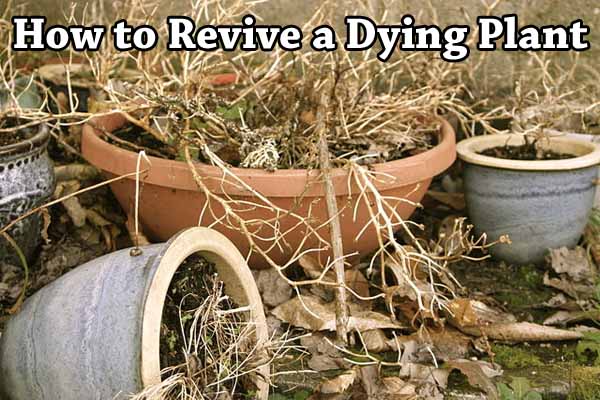UK Garden Upgrade Tax Relief in 2025: Are You Eligible for the New Scheme?

In 2025, homeowners across the UK are being encouraged to go green—not just indoors, but outside as well. With environmental policies tightening and eco-conscious living on the rise, the government has introduced new support through the UK garden upgrade tax relief scheme. This initiative is part of a wider push toward green home incentives UK that reward eco-friendly improvements to private properties.
If you’re considering upgrading your garden, this could be the perfect time. But how does the scheme work, and who actually qualifies? Here’s everything you need to know.
What Is the UK Garden Upgrade Tax Relief?
The UK garden upgrade tax relief is a newly launched government-backed scheme aimed at incentivising sustainable garden improvements. Unlike past garden grants, which were mostly focused on community spaces or urban greening, the 2025 scheme targets individual homeowners looking to make eco-conscious changes to their outdoor spaces.
The relief allows eligible homeowners to claim a portion of their garden renovation costs as a tax deduction—provided the upgrades meet environmental and sustainability criteria.
What Garden Improvements Are Eligible?
Not all garden work qualifies under the tax relief scheme. To be eligible, the improvements must align with the government’s environmental goals—meaning they should contribute to biodiversity, water conservation, or energy efficiency.
Examples of qualifying improvements:
- Installing a green roof or living wall on outbuildings or garden sheds
- Setting up a rainwater harvesting system or greywater irrigation
- Planting native trees and pollinator-friendly plants
- Building permeable paving or eco-friendly drainage systems to prevent water runoff
- Installing solar-powered garden lighting or equipment
- Creating a home composting system or greenhouse for sustainable food growing
Non-qualifying examples:
- General landscaping purely for aesthetic purposes
- Installing artificial grass
- Building patios or BBQ areas with no eco-benefits
How Much Can You Claim?
The relief allows you to deduct up to 30% of qualifying costs from your income tax bill, with a maximum annual claim of £2,500 per property. For households with joint ownership, the cap may be split based on ownership percentage.
Additionally, if your garden upgrades form part of a larger home improvement aligned with other green home incentives UK—such as improved insulation or renewable energy installations—you may be able to stack benefits and claim additional rebates.
Who Is Eligible for Garden Improvement Rebate?
To qualify for the garden improvement rebate, you must:
- Own and occupy the property as your primary residence (tenants and landlords are not eligible)
- Use certified eco-friendly materials and registered contractors, where required
- Keep receipts, project documentation, and photos as proof of qualifying improvements
- Submit your claim as part of your self-assessment tax return or via HMRC’s online portal
Retired individuals and those not required to file tax returns may still be eligible to receive the rebate directly as a grant, depending on income and pension status.
How to Apply
- Plan your project: Identify upgrades that meet the environmental criteria.
- Check for approved materials and services: HMRC has a list of registered eco-products and installers.
- Keep clear records: Document every expense, including receipts, contracts, and before/after photos.
- Submit your claim: File through your HMRC account or with your self-assessment form at the end of the tax year.
- Await confirmation: If accepted, the relief will be applied to your tax return or issued as a rebate.
Real-World Example
Emma and James, a couple from Bristol, converted their paved garden into a wildlife-friendly space with a small rain garden, native shrubs, and solar lighting. Their total cost was £7,200. By meeting the criteria, they were able to claim £2,160 back through the new garden upgrade tax relief scheme.
Recommendation
20 Best Living Room Shelf Decor Ideas: How To Decorate Your Modern Living Room
Study Room Decoration: Transform Your Study Space
Flower Decoration for Home: Bring Nature’s Beauty Into Your Living Space
35 Types of Snake Plant Varieties to Grow Indoors | Best Sansevierias
Step By Step Instructions to Save your Snake Plant from Root Rot
A Complete Guide to Snake Plant Care
How To Choose The Best Soil for Snake Plant
Are Snake Plants Really Toxic to Cats?
FAQs: UK Garden Upgrade Tax Relief
Q1. Can landlords claim this tax relief for rental properties?
A: No. The scheme is designed exclusively for owner-occupiers. Landlords and investment properties are excluded.
Q2. Can I claim for DIY work or only professional services?
A: You can claim for both, but materials must be eco-certified. Labour costs are only eligible if performed by licensed contractors on HMRC’s approved list.
Q3. Do I need pre-approval before starting my garden project?
A: Pre-approval is not mandatory but highly recommended, especially for higher-cost projects. It ensures the work qualifies before you invest.
Q4. Can this be combined with other green home incentives UK?
A: Yes. If your garden project complements broader energy-efficiency upgrades, you may be able to access additional schemes or stack rebates.
Q5. What if I miss the tax filing deadline?
A: Late claims may not be accepted. It’s essential to keep documentation and apply before the tax year’s end to secure your rebate.
Final Thoughts
The UK garden upgrade tax relief offers a meaningful way for homeowners to contribute to sustainability while improving their outdoor living spaces. With climate action becoming a national priority, these types of green home incentives UK are expected to expand in the coming years.
If you’re planning any garden improvements in 2025, now’s the time to think beyond beauty and invest in biodiversity, resource conservation, and long-term environmental value. Not only will your garden flourish, you’ll benefit from a tangible garden improvement rebate that rewards responsible living.






